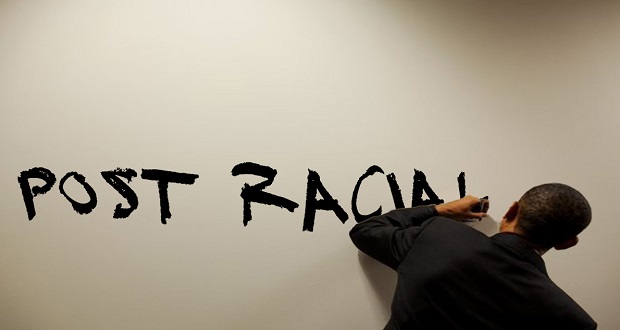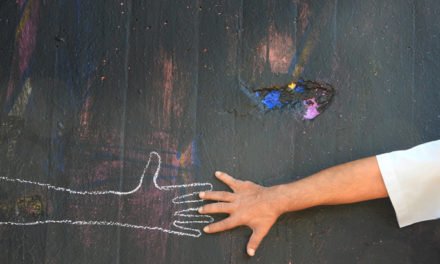by Dr. Joseph R. Winters, II

There are at least two ways to think about the term “post-racial.” On the one hand, it can allude to a society that (after the election of the first black President) is no longer hampered by the racism of the past. According to this view, we have moved beyond racial reasoning; any attempt to introduce or broach the topic of race in public spaces is therefore identified as divisive, regressive, and disingenuous. This position might lead someone to either ignore racial disparities in education, housing, health care, and prison or attribute these inequalities to certain cultural deficiencies (lack of a work ethic in certain communities, lack of a strong family structure, etc.). It might also lead someone to downplay the connections between “traditional racism” and recent forms of racial cruelty and fear directed toward Muslims, Arabs, and Latinos.
But there is another conception of the post-racial that is more favorable and promising in my view. This sense of the term acknowledges that race is an unstable category, that black culture has never been monolithic, and that race points beyond itself—to categories like gender, sexuality, class, nationality, citizenship, and so forth. As my friend and colleague Kent Brintnall always says, these categories and identities are co-constitutive; they inform and shape each other in ways that elude simple and facile analyses of our social worlds. In other words, one cannot analyze events, conditions, and patterns of inequality in our society with only a racial lens or frame.
Think for instance of two recent controversies in the National Football League. One surrounds Richard Sherman, the cornerback for the Seattle Seahawks who was labelled a thug (by bloggers and members of the internet community) after his passionate, “excessive” response to the team’s win over San Francisco. For those who endorse the first sense of the post-racial, the term thug is race-neutral and applied in a color-blind manner. For those who might adopt the second sense of the post-racial, the term thug (as Sherman astutely pointed out) signifies fears, anxieties, and fantasies about young, working class black men; it is used to identify and devalue black male bodies whose behaviors, styles, ways of speaking and dressing do not accord with middle class conventions and sensibilities. Or we might think about the ways in which Jonathan Martin and Ritchie Incognito’s black teammates suggested to reporters that Incognito is more “black” than Martin. Incognito’s honorary blackness is a code for toughness; Martin’s supposed lack of blackness is a code for weakness. In other words, the Miami Dolphins players were assuming that a strong, “proper” masculinity is a marker of authentic blackness.
Strong versions of the post-racial idea cultivate amnesia and indifference. Weaker versions of the post-racial idea acknowledge the instability of racial categories and invite us to examine the intersections and tensions between race, gender, class, and sexuality. Making this distinction is urgent at a time when the pervasive fear of the “thug” is used to justify the shooting of black men and women. Rest in peace Jordan Davis and Renisha McBride.



















Wonderful article by Dr. Joseph Winters II on post racial sentiments. His comments on the use of the word “thug” to describe an African American NFL player’s actions reminded me of the initial criticism Dr. Omalu received from the NFL when he discovered a new disease in deceased NFL players he called Chronic Traumatic Encephalopathy (CTE). In an effort to discredit his findings and save the NFL from panic from football moms, the NFL’s research committee described Dr. Omalu’s work as “practicing voodoo.” Would they have used this adjective if Dr. Omalu had not been African?